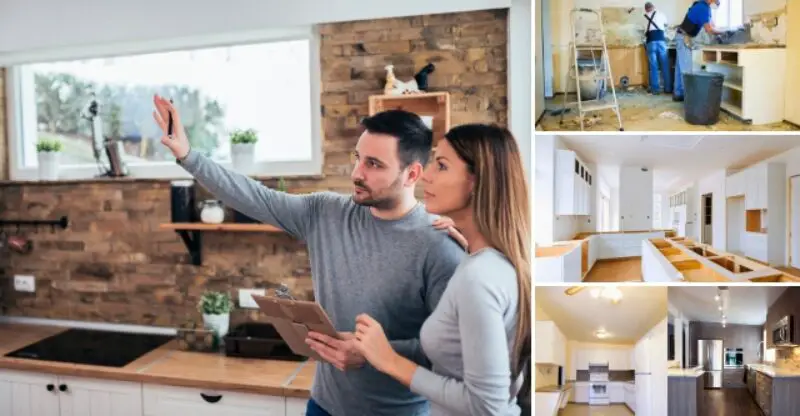7 Things I Wish I Knew Before Renovating My Kitchen
A kitchen renovation is so exciting! You dream of a beautiful new space. But, it can also be a lot of work. I learned so much from my own kitchen project. There are things I wish someone had told me before I started.
Thinking about everything ahead of time is super important. It can help you avoid surprises. This guide will share seven key things that will make your kitchen remodel go much smoother. Let’s dive in and get you ready for your dream kitchen!
1. A Solid Plan is Everything
Before you pick up a single hammer, you need a plan. A really good one. I thought I knew what I wanted, but I didn’t think about the small details. This caused delays and cost me more money. A good plan is like a map for your renovation. It shows you where you are going.
First, think about how you use your kitchen. Do you cook a lot? Do you need a lot of counter space? Maybe you want a big island for family breakfasts. Thinking about this will help you create the perfect kitchen for your family’s needs. Write down everything you want. Look at pictures for ideas. The more detailed your plan, the better.
Next, think about the layout. This is how everything is placed in your kitchen. The “kitchen triangle” is a good rule to follow. This means your fridge, stove, and sink should make a triangle. This makes it easy to move around when you cook. A good layout can make a huge difference in how much you enjoy your new kitchen.
Finally, once you have a plan, try to stick to it. Changing your mind in the middle of the project can cause big problems. It can lead to more costs and a longer timeline. Of course, small changes might happen. But having a solid plan from the start is the best way to keep your project on track.
2. The Budget is Bigger Than You Think
When you think about the cost of a new kitchen, it’s easy to forget some things. I made a budget, but I didn’t think about all the little costs. Things like new outlets, unexpected plumbing issues, or even the cost of eating out while my kitchen was unusable. These small things added up fast!
It’s a good idea to add a “just in case” fund to your budget. Most experts, like those at This Old House, suggest adding an extra 15-20% for unexpected costs. This will give you peace of mind. Knowing you have extra money set aside will make those surprises less stressful. It helps you handle problems without breaking the bank.
It’s also important to know what is the most expensive part of a kitchen remodel. Usually, cabinets are the biggest cost. Knowing this can help you decide where to spend your money. Maybe you can save on something else to get the cabinets you really want. There are many ways to save money on a kitchen remodel if you plan carefully.
Understanding the average cost of a new kitchen can also give you a good starting point. Do your research and get quotes from different contractors. This will help you create a realistic budget that you can stick to.
3. Don’t Underestimate Storage
One of my biggest regrets is not planning for enough storage. I was so focused on how the kitchen would look. I didn’t think enough about where I would put everything. Now, my counters are cluttered, and my cabinets are overflowing.
Think about all the things you have in your kitchen. Pots, pans, dishes, food, and small appliances all need a home. Before you finalize your cabinet design, make a list of everything you need to store. This will help you figure out how much space you really need. Smart storage solutions can make a huge difference.
There are so many clever storage ideas now. You can have deep drawers for pots, pull-out shelves for spices, and even a special cabinet for your trash and recycling. If you have a small space, there are great kitchen island ideas for small kitchens that add both counter space and storage. Don’t be afraid to get creative!
Even if you’re on a budget, you can find ways to add more storage. You can update a small kitchen on a budget by adding open shelves or using organizers inside your cabinets. The goal is to have a place for everything, so your kitchen stays neat and tidy.
4. Lighting Changes Everything
I never realized how important lighting was until my new kitchen was done. I chose beautiful countertops and a great backsplash, but the poor lighting made everything look dull. Good lighting can make your kitchen feel bigger, brighter, and more welcoming.
You need different kinds of light in a kitchen. First, you need “task lighting.” This is bright light right where you work, like under the cabinets to light up the counters. This makes chopping vegetables and reading recipes much easier. You also need “ambient light,” which is the main light for the whole room, like a ceiling fixture.
Don’t forget about “accent lighting.” This is the fun lighting that adds style. It could be a cool pendant light over your island or lights inside glass cabinets. Mixing these three types of lighting will make your kitchen functional and beautiful. You can even use creative ways to use windows in a kitchen remodel to bring in more natural light.
When choosing light fixtures, think about the style of your kitchen. If you have a modern kitchen, you might want sleek, simple lights. For a farmhouse kitchen, you might choose something more rustic. And if you have beautiful oak cabinets, the right lighting can really make the wood shine.
5. The Mess and Disruption are Real
Living through a kitchen renovation is tough. I thought I was prepared for the dust and noise, but it was more intense than I imagined. For weeks, my house was a construction zone. It’s important to be ready for this disruption to your daily life.
Before the work starts, set up a temporary kitchen in another room. A microwave, a coffee maker, and a small fridge can be a lifesaver. This will help you save money on eating out and give you a sense of normalcy. Plan simple meals you can make without a full kitchen.
Also, talk to your contractor about how they will manage the dust. A good contractor will use plastic sheets to seal off the work area. They should also clean up at the end of each day. This won’t eliminate all the dust, but it will help keep the rest of your house clean.
Remember to be patient with the process. There will be days when you feel like it will never end. But it will. Keep your eye on the prize: your beautiful new kitchen. Thinking about the finished space can help you get through the tough days.
6. Choosing Materials is Harder Than it Looks
Walking into a showroom with endless choices of countertops, tiles, and flooring can be overwhelming. I spent weeks trying to decide on the right materials. It’s not just about what looks good. You also have to think about how durable and easy to clean they are.
Do your homework before you go shopping. Read about the pros and cons of different materials. For example, granite countertops are beautiful and durable, but they need to be sealed. Quartz is easier to maintain but can be more expensive. A great resource for this is the National Kitchen & Bath Association, which offers advice on selecting materials.
Bring samples home with you. A color that looks great in the store might look completely different in your kitchen’s light. Look at the samples at different times of the day. See how they look with your cabinet color and wall paint. This will help you make a choice you’ll be happy with for years to come.
Don’t be afraid to mix materials, but make sure they work together. If you have a beautiful wooden kitchen, you’ll want to choose materials that complement the wood. And think about the latest trends, like the colors that are replacing green kitchens in 2025, to keep your space looking fresh.
7. Hiring the Right Professionals is Key
This might be the most important lesson of all. The people you hire can make or break your renovation. A good contractor will guide you through the process, keep the project on schedule, and ensure high-quality work. A bad one can turn your dream project into a nightmare.
Don’t just hire the first person you talk to. Get recommendations from friends, family, or neighbors. Check online reviews and look at their past work. It’s important to find someone whose style matches what you want.
Always get a written contract. The contract should detail the scope of work, the timeline, the payment schedule, and the total cost. This protects both you and the contractor. Make sure you read it carefully and ask questions about anything you don’t understand.
Communication is also very important. You should feel comfortable talking to your contractor. They should listen to your ideas and concerns. A good working relationship will make the whole process much more enjoyable. Finding the right team is the best investment you can make in your kitchen renovation.
Conclusion
Renovating a kitchen is a big undertaking, but it is so worth it in the end. By planning carefully, setting a realistic budget, and thinking about the details, you can create a space you will love for years to come. I hope these lessons I learned the hard way will help make your kitchen renovation a huge success. Now, go and build your dream kitchen!



